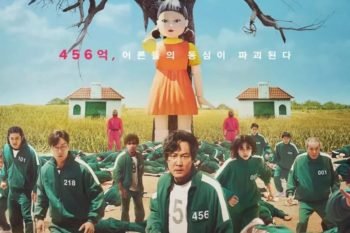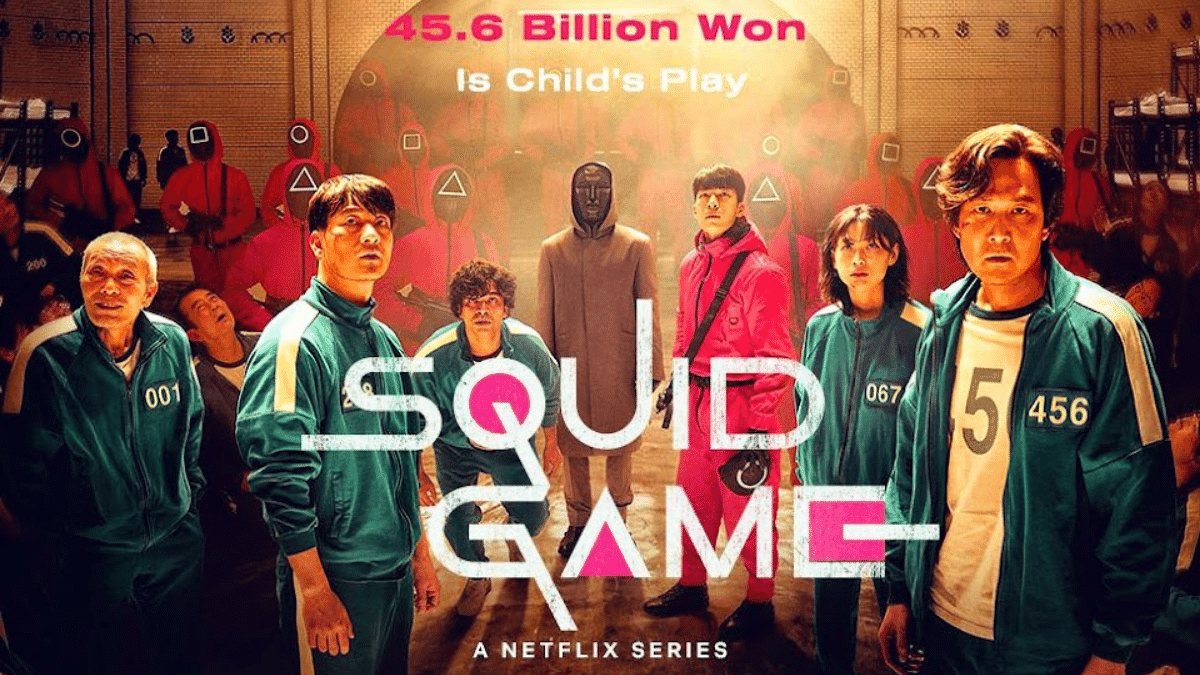Analyzing the Squid Game Plagiarism Allegations

The South Korean drama series Squid Game has been making headlines all over the world. Deemed by Netflix to be its “biggest-ever series launch”, the series has become a global phenomenon, being viewed by over 111 million accounts in the first month alone.
However, the runaway success of the show has not prevented it from being the center of some controversy.
Shortly after the series was released, many fans noticed similarities between the show and a 2014 Japanese film entitled As The Gods Will. Both works feature a series of childhood games with deadly consequences and both even start with the first game, a lethal version of “Red Light, Green Light” where contestants are killed if they are caught moving.
Squid Game’s director, Hwang Donghyuk, addressed the concerns, and said he actually wrote the script for Squid Game in 2009, well before As Tte Gods Will was released.
However, the allegations have continued to swirl, with others pointing out alleged similarities in the shots used between the works. Even now, a month later, new stories are being published to draw attention to the allegations.
As such, it’s worth taking a minute to examine the allegations, understand why Squid Game is almost certainly not a plagiarism of As the Gods Will and how this relates to similar controversies in film history.
Understanding the Squid Game Plagiarism Allegations

The allegations themselves are fairly straightforward, Both Squid Game and As the Gods Will are both stories about childhood games being played with deadly consequences.
In both, the first game played is “Red Light, Green Light”, a game where contestants attempt to reach a goal while being told to stop at random intervals. Those that move when they are supposed to be stopped are killed.
On the surface those sound very similar but, when you dive into the details, they become more distinct in nature.
With Squid Game, hundreds of adults have signed up to participate to win the game in hopes of winning a large cash prize. In As the Gods Will, the game is being played by high schoolers.
In the former, those that move are shot where, in the Japanese movie, their heads are exploded. In Squid Game, the opening game is an elimination round that many survive but, with As the Gods Will, only the protagonist lives.
However, the most damming detail when trying to show plagiarism is the timeline of the works. According to Donghyuk, he wrote the script for Squid Game in 2008 and 2009. He claims he was forced to shelve it for over a decade due to lack of interest until Netflix came along.
Furthermore, he claims that the first game was set in those early drafts, predating the release of As the Gods Will. He further points out that, even though the first games are similar, the rest are not.
Though there are other allegations of similar shots as well as similarities to other survival films, those haven’t gained nearly the attention as the comparisons to As the Gods Will. However, if the timelines of the two works are correct, there is literally no way Squid Game could be a plagiarism of As the Gods Will and the similarities between them have to be seen as coincidence.
We’ve Been Here Before

To be clear, this isn’t the first time that a major film was accused of plagiarism, only to learn tater that such plagiarism was impossible.
Back in February 2018, we covered the story of the Repo Men / Repo! The Genetic Opera controversy. There, the 2010 blockbuster film Repo Men was accused of ripping off the 2008 cult classic film Repo! The Genetic Opera as both films dealt with plots involving the repossession of financed organs.
However, when examined closely, the films not only had a long series of differences, most notably that Repo! Is an opera and Repo Men is a traditional blockbuster, but the timelines didn’t line up.
Both films had a pedigree that went back many years, with Repo Men being an adaptation of a book that started as an unpublished 13-page short story in 1997 and Repo! being an adaptation of a short, limited-run play from 2000.
In short, there was no reasonable way that one inspired the other. Two people simply had very similar ideas and made very different works based upon it.
Something similar almost certainly happened here. The “Deadly Game” a common trope used in books, TV and film, In fact, there are whole lists of Asian “Deadly Game” movies that follow this trope. It should be no surprise that two takes on this trope had some striking similarities.
Squid Game’s success has simply brought it a great deal of attention and, with that attention, comes comparisons to similar works. But, while there’s no doubt there are many similar works, of which As the Gods WIll is one, it doesn’t appear that Squid Game plagiarized it.
Bottom Line
To be clear, it is a remarkable similarity that both works began with the same game. However, it appears that is just a coincidence in this case.
Coincidences do happen. Eleven years ago (on this day no less) I wrote about the case of Dennis the Menace and how two characters with the same name were first published on the same day on two separate continents.
Given the timelines of the works involved, it is extremely unlikely that Squid Game plagiarized As the Gods Will. Simply put, the timelines don’t line up the similarities shared between the two don’t overcome the possibility of coincidence and shared tropes.
Without further evidence, there’s simply no way to give much weight to those claims.
Want to Reuse or Republish this Content?
If you want to feature this article in your site, classroom or elsewhere, just let us know! We usually grant permission within 24 hours.
